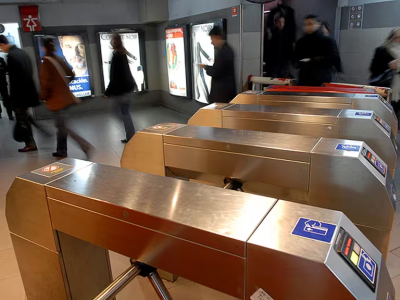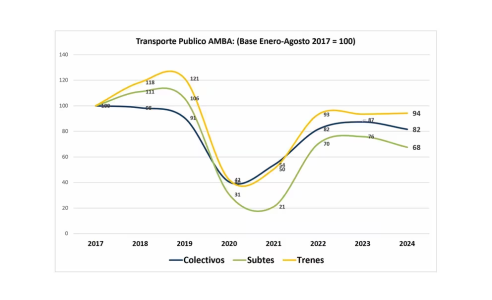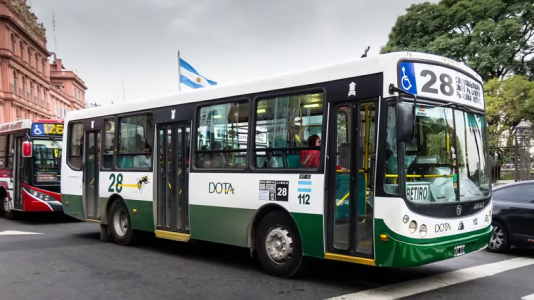All the Answers
Well-known member
Public transport use in AMBA fell due to fare hikes and recession - Infobae

Source:
Cayó el uso del transporte público en el AMBA por la suba del boleto y la recesión
En el subte se observa una retracción del 11% en la cantidad de viajes y de 6,6% en el caso de los colectivos, respecto al año pasado. Los próximos incrementos que prepara el gobierno
The subway has seen a 11% decrease in the number of trips and a 6.6% decrease in the number of buses compared to last year. The next increases that the government is preparing
By Augustin Maza

The impact of the crisis on public transport users in the AMBA
The impact of the increases in public transport fares in the Buenos Aires Metropolitan Area (AMBA) , in a context of recession, has resulted in a sharp drop in the number of passengers travelling by subway and bus so far this year. The decline is more pronounced compared to the pre-pandemic period due to the consolidation of home office. There will be new increases in fares in the coming months.
An analysis by the Argentine Association of Motor Transport Entrepreneurs (Aaeta) on transactions recorded in the SUBE system showed that in the first eight months of 2024, the cumulative number of transported users fell by 11% in the case of the subway and 6.6% in the case of buses compared to the same period in 2023. In the case of trains, a 1% increase was recorded in that period, due to greater oversight to avoid "freeloaders."

Argentine Association of Motor Transport Entrepreneurs (Aaeta)
Transport companies give three main reasons why there are fewer transactions and, therefore, fewer passengers.
The first is the increase in public transport fares . Bus fares have increased by 600% in the AMBA since Javier Milei took office ($52.96 in December and $371.13 as of August) due to the removal of subsidies, although they remain the second cheapest in the country. An increase of the same magnitude in train fares is completed with the update planned for Monday (from $48.38 to $280).
A similar process was observed in the subway under the management of the head of the Buenos Aires government, Jorge Macri . The fare started the year at $110 and from October it will go up to $757, a cumulative jump of 688%.
The other reason given by bus companies for the drop in passengers is the fall in economic activity. According to the National Institute of Statistics and Census (Indec), the economy accumulated a contraction of 2.3% in the first half of the year compared to the same period of the previous year. The greatest recovery came from agriculture due to the post-drought effect and from mining due to the advance of Vaca Muerta, while commerce and industry continued to decline.
Another factor that influences the lower number of passengers is the deterioration of the service. “In some cases there are people who, even if they can pay the ticket, do not do so because they prefer to walk or travel another way because the journey is worse. There is less frequency due to the delay in fares and the lack of compensation to companies for the adjustment of subsidies,” explained Aaeta.
Compared to the pre-pandemic, the number of passengers traveling by bus is currently 18% lower than in 2018, almost 40% in the case of the subway and almost 20% on AMBA trains. This comparison also reflects the consolidation of the teleworking phenomenon.

The bus fare has jumped 600% since Milei took office
Consumers have also faced sharp increases in utility rates for electricity, gas and water so far this year, both in the AMBA and in the rest of the country. Since Milei took office, there are 852,677 more households that receive electricity subsidies and, of those, 111,114 also receive natural gas subsidies, as published by Infobae based on official information to which it had exclusive access . The provinces in which the number of beneficiaries grew the most are those in which poverty rose the most: Corrientes, Formosa, Catamarca, Chaco and Córdoba.
In the case of fuels, sales nationwide had accumulated eight consecutive months of declines until July, within the framework of an accumulated increase of more than 160% since November. These are data from the Energy Secretariat collected by the consultancy firm Politikon Chaco.
The Indec Consumer Price Index (CPI) in August was 4.2% monthly, accumulated 94.8% in eight months and 236.7% in the last year at the national level. The housing, water, electricity and other fuels sector led the index with 7% last month, but 179.9% so far this year and 298.8% year-on-year, well above inflation. The transport sector increased by 5.1%, 114.8% and 270.6%, respectively.

